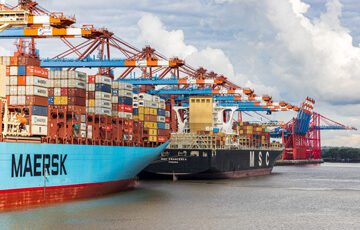
Vertical price fixing, exclusivity arrangements and territory distribution between suppliers and distributors fall under the cartel prohibition when they noticeably restrict competition. The Block Exemption Regulation for vertical agreements provides exemption for arrangements between parties with market share below 30%, provided hardcore restrictions such as fixed resale prices and absolute territorial protection are absent.
Suppliers may use recommended prices, set maximum prices and prohibit active sales to exclusive territories. Under Article 6 of the Dutch Competition Act and Article 101 TFEU, the Netherlands Authority for Consumers and Markets (ACM) assesses whether vertical agreements create appreciable restrictions of competition. The ACM has issued warnings to suppliers in sectors including baby products, electronic sports equipment and home furnishings for unlawful price agreements, imposing fines of millions of euros on companies such as Samsung (€39 million) and LG (€8 million). Distribution agreements must balance commercial objectives with strict compliance requirements to avoid nullification of contract clauses and substantial financial penalties reaching 10% of worldwide annual turnover.
How Does the ACM Assess Agreements Between Suppliers and Distributors Under Dutch Law?
The Netherlands Authority for Consumers and Markets (ACM) primarily evaluates vertical agreements based on Article 6 of the Dutch Competition Act and Article 101 TFEU. Agreements between suppliers and distributors are permitted when they do not lead to appreciable restriction of competition or when they meet the conditions of the Block Exemption Regulation, which sets a market share threshold of maximum 30% for both supplier and distributor. Hardcore restrictions such as vertical price fixing and absolute territory distribution are categorically prohibited, regardless of market share.
The ACM applies a structured assessment framework examining five core elements. First, the authority determines whether an agreement exists between undertakings that restricts their freedom to independently determine market behavior. Second, it evaluates whether the restriction appreciably affects competition within the Dutch jurisdiction. Third, it verifies compliance with the 30% market share threshold on both the supply and purchase market. Fourth, the ACM checks for presence of hardcore restrictions that automatically disqualify the entire agreement from block exemption. Finally, it assesses whether efficiency gains under Article 101(3) TFEU justify restrictions exceeding the safe harbor.
The ACM has demonstrated enforcement rigor in the consumer electronics sector. Samsung received a €39.5 million penalty for systematic price influence affecting 85% of online retailers over a three-year period. LG faced an €7.9 million fine for comparable conduct involving television sales. These cases establish that even indirect price coordination—such as threatening delivery suspension for price discounting or linking rebates to price maintenance—triggers the cartel prohibition.
What Price Arrangements Are Permitted Between Supplier and Distributor in the Netherlands?
A supplier cannot impose fixed or minimum resale prices on distributors, as this eliminates price competition between retailers. Both direct price fixing (“sell this product for €100”) and indirect forms—such as threatening delivery suspension for price dumping or linking discounts to price levels—fall under this prohibited category according to Dutch competition law.
Permitted arrangements include:
- Recommended retail prices without enforcement mechanism
- Maximum resale prices, provided these do not function as fixed prices in practice
- Temporary fixed prices for product launches or short-term promotions
- Differences in wholesale prices between online-only and offline-only distributors (no dual pricing within the same purchaser)
The cartel prohibition specifically targets agreements restricting the distributor’s freedom to independently set prices. The ACM clarified in 2024 that market division through price agreements—where retailers in Amsterdam must charge different prices than in Rotterdam—is equally prohibited. Article 101(1)(a) TFEU expressly forbids agreements that directly or indirectly fix purchase or selling prices.
Suppliers seeking to protect brand positioning may implement selective distribution systems with objective quality criteria for authorized dealers. These criteria must relate to distributor capabilities such as trained staff, appropriate premises and customer service standards—not price maintenance. A specialized electronics supplier can require distributors to maintain demonstration facilities and technical support, thereby justifying premium positioning without fixing resale prices.
When Is Dual Pricing Permitted or Prohibited According to Dutch Legislation?
Dual pricing—charging different wholesale prices to the same distributor for online versus offline sales—constitutes a hardcore restriction under Dutch competition law. This prohibition applies since the 2022 revision of the Block Exemption Regulation. For example, a supplier cannot charge a 10% higher purchase price for products a distributor sells through its webshop compared to its physical store.
Conversely, charging different prices between different types of customers remains permitted, such as pure webshops versus traditional stores. The price difference must correlate with objective cost differences in distribution channels—for instance, lower showroom investments for online-only retailers. The ACM evaluates whether the price differential is proportional to actual cost variations in inventory management, customer service and physical sales points.
The distinction rests on whether price differentiation applies within the same legal entity or between separate undertakings. A supplier may offer an online specialist lower wholesale prices reflecting reduced service requirements, provided the pricing structure applies consistently across all online-only distributors. However, requiring a single distributor operating both channels to pay different prices for identical products constitutes unlawful dual pricing.
Suppliers aiming to stimulate showroom investments can pay distributors a fixed compensation for demonstration facilities instead of creating price differences for the same product within the same purchaser. This compensation model—structured as service fee rather than price discrimination—survives scrutiny under Article 101 TFEU. The ACM accepted such arrangements where compensation amounts to documented costs of product demonstrations, staff training and customer consultation facilities.
What Are the Rules for Territory Distribution and Exclusivity in the Netherlands?
Exclusive distribution—where a supplier appoints a limited number of distributors per geographic area or customer group—is permitted in principle under the Block Exemption Regulation. The supplier may appoint maximum five distributors per territory, with the number proportional to territory size and required investments. Territory allocation must reflect objective criteria such as population density, market potential and infrastructure requirements rather than arbitrary division.
What Restrictions May a Supplier Impose on Exclusive Distributors According to Dutch Law?
The supplier may prohibit active sales outside assigned territories. Active sales comprise targeted marketing actions including:
- Direct mailings and emails to customers in other territories
- Physical sales visits outside the assigned territory
- Advertisements specifically directed at consumers elsewhere
- Country-specific domain names and language versions (except English)
Passive sales can never be restricted under Dutch competition law. Passive sales occur when customers initiate contact with the distributor independently, for example through a generic .com website or following general online advertising. Therefore, a distributor from The Hague must be able to serve customers from Amsterdam who order independently, even if another distributor holds exclusive rights for Amsterdam.
The distinction between active and passive sales determines the lawfulness of territorial restrictions. Article 4(b) of the Block Exemption Regulation permits restriction of active sales by buyers operating at the retail level to territories or customer groups reserved exclusively to the supplier or allocated exclusively to another buyer. However, it categorically forbids restriction of passive sales to such territories or groups.
A European Commission case illustrates enforcement priorities. A sports equipment manufacturer prohibited distributors from responding to unsolicited requests from customers outside their territory, effectively restricting passive sales. The Commission imposed a €15 million fine, emphasizing that absolute territorial protection eliminates arbitrage opportunities and maintains artificial price differences between member states.
Which Online Sales Restrictions Are Prohibited Under Dutch Competition Law?
Competition law treats various online restrictions as hardcore limitations:
- A total prohibition on internet sales
- Imposing a fixed ratio between online and offline turnover (for example, maximum 25% online)
- A complete ban on price comparison websites, unless based on objective quality criteria
- Advertising restrictions preventing distributors from bidding on brand name-related search terms throughout their entire sales territory
Permitted restrictions include:
- Ban on sales through online marketplaces (such as Amazon, Bol.com) to protect brand image for luxury products
- Quality requirements for websites, such as requirements regarding product presentation and customer service
- Limitation of bidding on brand name search terms exclusively in exclusive territories of other distributors
The distinction between active and passive online sales remains crucial: a general webshop without geographic targeting constitutes passive sales and cannot be prohibited. Article 4(e) of the Block Exemption Regulation permits restriction of online sales by members of a selective distribution system to unauthorized distributors operating in markets where the system operates, but it prohibits restriction of customers’ access to distributor websites.
The European Court of Justice clarified in the Coty case that suppliers of luxury goods may prohibit authorized distributors from using third-party platforms where platform operators become visible to consumers as alternative suppliers. However, this prohibition requires objective justification based on brand positioning and applies only to genuine luxury products where selective distribution serves legitimate quality objectives.
How Do Non-Competition Clauses Work in Distribution Agreements Under Dutch Law?
Non-competition clauses restrict distributors in carrying competing products. These agreements fall under the Block Exemption when they meet strict conditions regarding duration, scope and market share. Dutch competition law recognizes three main forms of non-competition clauses in vertical agreements.
What Forms of Non-Competition Clauses Exist in Dutch Distribution Law?
Competition law distinguishes three main categories:
1. Complete non-competition: The distributor cannot sell products competing with the supplier’s range. This restriction applies for maximum five years in agreements for definite duration. With tacit renewal, the distributor must genuinely be able to renegotiate or terminate without significant barriers after five years.
2. Exclusive purchase obligation: The distributor purchases minimum 80% of its total requirement of the relevant product type from one supplier. This quantitative threshold determines whether a non-competition clause exists within the meaning of the Block Exemption Regulation.
3. Post-contractual non-competition clause: After contract termination, the distributor temporarily cannot carry competing products. This restriction is permitted for maximum one year and exclusively for the former sales point of the distributor—not for other locations.
Article 5(1)(a) of the Block Exemption Regulation specifies that non-competition obligations exceeding five years duration do not benefit from exemption. The five-year limit applies to both definite and indefinite duration agreements. For indefinitely renewable agreements, genuine renegotiation opportunity must exist at five-year intervals, with reasonable termination rights for the distributor.
The restriction to the former sales premises for post-contractual clauses prevents suppliers from effectively eliminating distributors as competitors across their entire business operation. A distributor operating multiple locations can only be restricted regarding the specific premises where the supplier’s products were sold, not across the distributor’s entire retail network.
When Does the Block Exemption Lapse for Non-Competition Clauses in the Netherlands?
The Block Exemption does not automatically apply to non-competition clauses that:
- Exceed five years duration without genuine renegotiation opportunity
- Remain applicable to multiple sales points after contract termination
- Relate to products outside the original supply range
- Are combined with other restrictive agreements exceeding the 30% threshold
Franchise agreements constitute an exception: non-competition clauses may cover the entire contract duration, as the franchisee uses the franchisor’s know-how and trade name. However, after termination the same restrictions apply as for regular distribution.
In case of doubt regarding validity, the distributor must demonstrate that the clause is indispensable for efficiency improvement, a fair share of advantages accrues to consumers, and sufficient competition remains. This requires objective market analysis and documented efficiency gains. The burden of proof rests with the party invoking the efficiency exception under Article 101(3) TFEU.
A practical example involves a specialized bicycle manufacturer requiring dealers to exclusively carry its brand for three years. This arrangement falls within the Block Exemption provided the supplier’s market share remains below 30% and the restriction does not extend beyond the initial contract period without genuine renewal negotiation. However, prohibiting the dealer from selling any bicycles for one year after contract termination—rather than limiting the restriction to the former sales location—exceeds permissible scope.
What Sanctions Do Parties Risk for Violation of the Cartel Prohibition in Dutch Law?
Violations of the cartel prohibition lead to nullification of the relevant contract provisions or even the entire agreement under Article 101(2) TFEU. Additionally, the ACM and European Commission can impose fines up to 10% of worldwide annual turnover of the involved undertakings.
How Does the ACM Calculate Fines for Vertical Price Fixing in the Netherlands?
The ACM applies a calculation methodology based on infringement severity, duration and scope of affected market. Hardcore restrictions such as vertical price fixing qualify as serious violations with an increase of the base amount up to 30%. The ACM calculates the fine as a percentage of relevant turnover (turnover of products to which the infringement relates) multiplied by the number of years the infringement lasted.
For vertical price fixing, the ACM considers:
- Degree of influence: How systematic and coercive was the price fixing?
- Market coverage percentage: What proportion of distributors was bound?
- Price effect: To what extent were prices artificially increased?
- Duration: Short-term violations (< 1 year) receive lower fines
LG received an €7.9 million fine in 2023 for price influence in television sales over three years, involving 85% of online retailers. Samsung received €39.5 million earlier for comparable conduct over a longer period with higher market coverage. These decisions demonstrate the ACM’s graduated response proportional to infringement characteristics and market impact.
The ACM’s 2019 Fining Policy specifies that the basic amount equals relevant turnover multiplied by the infringement duration, with a multiplier reflecting gravity. For vertical price fixing affecting substantial market portions, the multiplier typically ranges between 15% and 30% annually. Aggravating circumstances—such as repeated infringement, obstruction of investigation or role as instigator—can increase the final penalty by up to 50%.
Can Injured Parties Claim Damages Under Dutch Competition Law?
Distributors suffering damage from unlawful competition restrictions can claim damages based on Article 6:193j of the Dutch Civil Code. This requires establishing:
- A definitive determination of the cartel infringement by ACM or court
- Causal relationship between infringement and suffered damage
- Concrete damage items such as lost profits, additional costs or reduced margins
The burden of proof lies with the injured party, although since implementation of the Damages Directive in 2017, access to evidence has been simplified. Damage from vertical price fixing often manifests as missed sales opportunities due to artificially high prices or loss of market position to competitors.
The limitation period amounts to five years from the moment the injured party became aware of the infringement and the perpetrator, with an absolute term of twenty years after the infringement. Dutch courts increasingly recognize follow-on damages actions after ACM decisions, reducing evidentiary burdens for claimants who can rely on the authority’s factual findings.
A Rotterdam-based electronics distributor successfully claimed €180,000 in damages after establishing that a supplier’s minimum price requirements caused lost sales to price-sensitive customers during a two-year period. The distributor demonstrated causation by comparing sales volumes before and after the unlawful price fixing, adjusted for market trends. This case illustrates that quantifiable damages require detailed documentation of commercial impact and counterfactual analysis.
How Do You Assess Whether a Distribution Agreement Complies with Competition Rules in Dutch Law?
Suppliers and distributors can independently assess whether their agreement complies with the cartel prohibition by conducting systematic analysis in four steps under Dutch competition law.
Step 1: Does the Agreement Contain a Competition Restriction in the Netherlands?
First determine whether arrangements restrict parties’ freedom to independently determine their market behavior. Competition restrictions arise from:
- Restrictions on pricing (fixed, minimum, discount-dependent)
- Territorial restrictions (geographic, per customer group)
- Purchase obligations exceeding 80% of requirement
- Non-competition clauses during or after the agreement
- Restrictions on online sales or advertising possibilities
Note: not every restriction is automatically problematic. The question is whether the restriction is appreciable and falls under a prohibited category. Article 101(1) TFEU requires that agreements appreciably affect trade between member states and have as their object or effect the prevention, restriction or distortion of competition.
An agreement between a Dutch supplier and French distributor automatically affects intra-EU trade, triggering TFEU application. Purely domestic arrangements involving parties with combined market share below 15% typically escape the appreciability threshold under the De Minimis Notice. However, hardcore restrictions remain prohibited regardless of market share under Dutch competition law.
Step 2: Is There a Hardcore Restriction According to Dutch Competition Regulation?
Hardcore restrictions make the Block Exemption immediately inapplicable to the entire agreement:
Prohibited hardcore restrictions:
- Fixed or minimum resale prices
- Dual pricing (different wholesale prices for online/offline within the same purchaser)
- Absolute territorial protection (restriction of passive sales)
- Total prohibition on internet sales
- Fixed online/offline turnover ratios
- General prohibition on price comparison sites
Permitted restrictions:
- Recommended retail prices without sanction
- Maximum resale prices
- Prohibition of active sales to exclusive territories
- Prohibition of online marketplaces for luxury products
- Quality requirements for webshops
The presence of a single hardcore restriction contaminates the entire vertical agreement, removing block exemption protection. Consequently, even non-problematic clauses within the same agreement lose presumptive legality. Parties must then demonstrate that the entire arrangement—including the hardcore element—satisfies the four conditions of Article 101(3) TFEU, which rarely succeeds for price fixing or absolute territorial protection.
Step 3: Does Market Share Remain Below 30% Under Dutch Competition Law?
Calculate market share on the relevant market for both supplier (sales market) and distributor (purchase market). The 30% threshold applies cumulatively: both parties must separately remain below this percentage.
For market definition, the following are relevant:
- Product dimension: Which products are substitutable for the consumer?
- Geographic dimension: Within which area can consumers realistically choose alternatives?
- Time dimension: Do market shares change significantly within the financial year?
Exceeding 30% does not automatically mean prohibition, but requires individual assessment under the efficiency exception. The ACM applies the European Commission’s Market Definition Notice, examining demand-side substitutability based on the hypothetical monopolist test. A 5-10% price increase for a sustained period determines which products constrain the supplier’s pricing power.
For a specialized medical equipment supplier in the Netherlands, the relevant market comprises professional healthcare providers within Dutch territory able to purchase substitute products. Market share calculation requires sales data of all competitors offering functionally equivalent devices to the same customer base. Geographic markets typically align with national borders where regulatory requirements, language and established distribution networks create natural boundaries.
Step 4: Does the Agreement Satisfy the Efficiency Exception in Dutch Competition Law?
If the Block Exemption does not apply, parties can invoke Article 101(3) TFEU. This requires cumulatively:
1. Efficiency improvement: The restriction must lead to production, distribution or technological improvement. Examples include protection against free-riding on service investments, economies of scale in distribution, or stimulation of market entry.
2. Consumer benefit: At least a fair share of efficiency gains must reach consumers through lower prices, better quality, greater choice or faster delivery.
3. Indispensability: The restriction must be strictly necessary for the efficiency. Less restrictive alternatives must not be available.
4. Residual competition: Sufficient competitive pressure must remain, so undertakings are incentivized toward further improvements.
The burden of proof for these four conditions lies with parties invoking the exception. This requires documented market analysis, cost calculations and evidence of consumer benefit. The European Commission’s Article 101(3) Guidelines specify that qualitative efficiency claims need quantification of cost savings and timeline for consumer benefit realization.
A practical application involved an Amsterdam-based pharmaceutical distributor demonstrating that exclusive territory allocation prevented free-riding on its investments in cold chain logistics and pharmacist training. The arrangement qualified under Article 101(3) TFEU because: (1) it enabled specialized temperature-controlled distribution improving product quality, (2) hospitals benefited from enhanced product integrity and expert consultation, (3) no less restrictive alternative achieved comparable logistics reliability, and (4) three competing distribution systems remained active in the Netherlands.
What Are the Specific Rules for Dual Distribution in Dutch Competition Law?
Dual distribution arises when a supplier sells both through distributors and directly to end customers—for example through its own webshop alongside physical retailers. This construction requires additional safeguards against unlawful information exchange under Dutch competition law.
What Information Exchange Is Permitted with Dual Distribution in the Netherlands?
The Block Exemption applies exclusively to information exchange that directly relates to execution of the distribution agreement and is necessary for production or distribution improvement. Permitted information includes:
- Product performance and technical specifications
- Inventory levels and delivery times
- Quality complaints and product improvements
- General market trends (not customer-specific)
Prohibited information exchange:
- Future resale prices or pricing strategies
- Customer-specific data (names, purchase history, preferences)
- Planned promotions or discount campaigns
- Competitively sensitive business information without distribution relationship
Suppliers must implement organizational measures: the internal team for direct sales must be shielded from information distributors provide. This can be achieved through separate IT systems, Chinese walls between departments, and restrictive access rights to commercial data. Article 2(4) of the Block Exemption Regulation explicitly excludes information exchange between competitors from its scope, treating the supplier’s retail activities as competing with its distributors.
The European Commission’s Vertical Guidelines specify that commercially sensitive information includes data enabling coordination of competitive behavior. Customer lists revealing identity and purchasing patterns constitute sensitive information, whereas aggregated sales statistics per product category generally do not. However, even aggregated data becomes problematic when combined with dual distribution, as it enables the supplier to align its direct sales strategy with distributor pricing.
What Happens When Dual Distribution Combines with Price Agreements According to Dutch Law?
Combination of dual distribution with price agreements often leads to presumption of cartel formation. The ACM investigates whether the supplier uses information from distributors to align its own sales prices, or vice versa. For example: a supplier charging the same recommended prices through its webshop as required from distributors raises suspicion of price coordination.
The Super Bock judgment of the Court of Justice clarified that vertical price fixing requires distributors to knowingly consent to imposed prices. Unilateral price recommendations without enforcement do not fall under this category. However, with dual distribution the boundary narrows: active monitoring of distributor prices with subsequent “conversations” about pricing can qualify as tacit price agreement.
The Dutch Competition Authority examines whether information flows enable or facilitate anticompetitive coordination. A supplier receiving monthly price reports from all distributors while operating competing retail channels creates structural risk of parallel behavior. This risk intensifies where the supplier publicly advocates “stable pricing” or “fair competition” while simultaneously adjusting its own direct sales prices to match distributor levels.
Therefore, suppliers engaging in dual distribution should implement strict information barriers, document legitimate business justifications for any price-related communications, and avoid systematic monitoring of distributor resale prices. Competition compliance programs must address these risks through training, internal protocols and regular audits of information flows between retail and wholesale divisions.
What Negotiation Margins Do Suppliers and Distributors Have in Distribution Agreements Under Dutch Law?
Contract law supplements competition rules with protection against unreasonable terms and abuse of dominance. Dutch case law provides distributors limited protection upon contract termination, unless an agency relationship exists.
When Is a Distributor an Agent in Competition Law Terms Under Dutch Legislation?
A distributor qualifies as agent when acting as representative of the supplier (principal) and bearing no or minimal financial and commercial risks. Relevant risks include:
- Inventory risk: Does the distributor become owner of products?
- Investment risk: Does he make market-specific investments without compensation?
- Customer risk: Does he bear risk of non-payment by end customers?
A distributor working on commission basis who may return inventory, but invests independently in a specialized showroom, website and product training without compensation, remains subject to the cartel prohibition. The investment risks make him an independent distributor rather than agent. Article 1(2) of the Block Exemption Regulation explicitly excludes genuine agents from its scope, as principal and agent constitute a single economic entity.
The distinction carries significant consequences. Agency agreements escape Article 101 TFEU scrutiny because the agent lacks economic independence. However, Dutch law protects agents through specific compensation rules upon termination that do not apply to distributors. The Supreme Court established that agents qualify for goodwill compensation reflecting customer relationships they developed, whereas independent distributors bear termination consequences without statutory compensation rights.
How Do Reasonable Termination Periods Work for Distribution Contracts in Dutch Law?
Dutch law prescribes no fixed termination period for distribution agreements. The court assesses what is reasonable based on:
- Duration of collaboration: Longer relationships justify longer termination periods
- Distributor investments: Specific investments in inventory, training, marketing
- Nature of products: Seasonal or technical products require more preparation time
- Market circumstances: Availability of alternative suppliers
An iconic case involved a French winery terminating after one hundred years of collaboration. The Court ruled that termination after such lengthy cooperation requires weighty reason, despite formal termination authority in the contract. Distributors can invoke reasonableness and fairness (Article 6:248 Dutch Civil Code) to challenge excessively long termination periods or claim damages.
Prudent contracts specify termination periods of 6 to 12 months for regular termination, with shorter periods (1-3 months) for breach or underperformance. Post-contractual obligations—such as non-competition, inventory purchase and customer transfer—deserve explicit regulation. The Dutch Supreme Court established that implicit termination periods arise from collaborative duration and required transition time for replacement arrangements.
A Rotterdam distributor successfully challenged immediate termination after fifteen years representing an Italian furniture manufacturer. The court imposed a twelve-month notice period, reasoning that the distributor required substantial time to source alternative products, retrain staff and notify customers. This decision illustrates judicial willingness to supplement contractual provisions with equitable termination protection under Dutch law.
Contact a Specialized Law Firm for Expert Advice on Dutch Competition Law
Do you need certainty about the competition law validity of your distribution agreement? Our lawyers in the Netherlands analyze your specific situation and advise on optimal contract structure combining commercial objectives with legal compliance. We assess exclusivity arrangements, pricing provisions and non-competition clauses for compatibility with the cartel prohibition.
Practice example: An Amsterdam-based supplier of power tools wanted to protect dealers against online price fighters by imposing minimum recommended prices. However, this would constitute vertical price fixing—a hardcore restriction with fine risks reaching millions of euros. As alternative, we implemented a selective distribution system with quality requirements for showrooms and trained personnel, combined with fixed compensation for demonstration investments. This construction stimulates service provision without violating the cartel prohibition, and falls within the 30% exemption as the supplier’s market share amounts to 18%.









